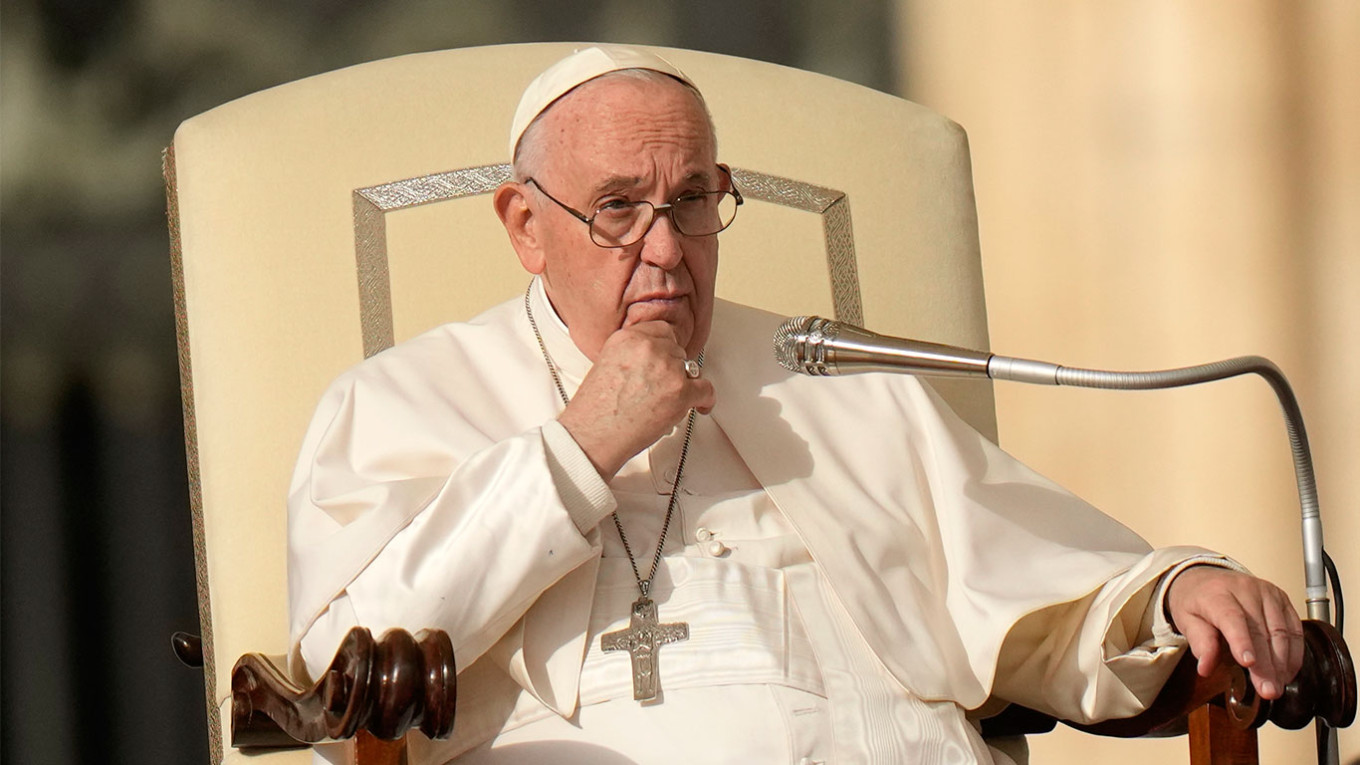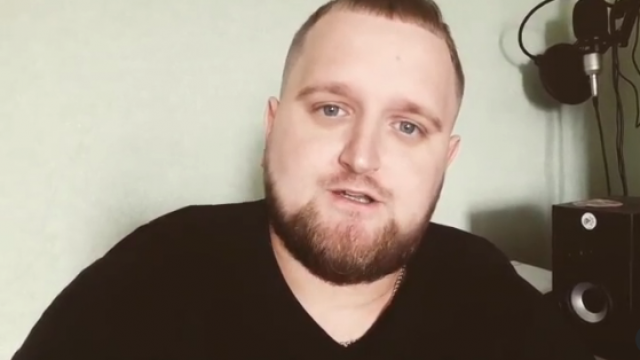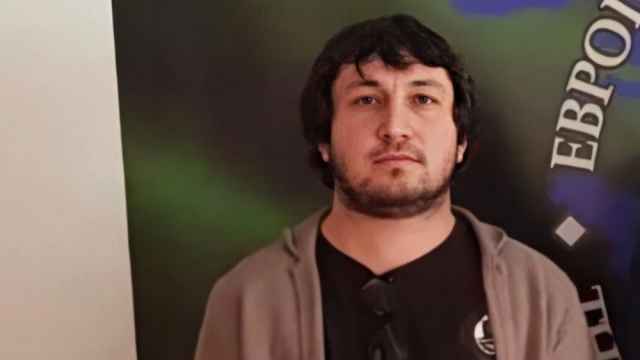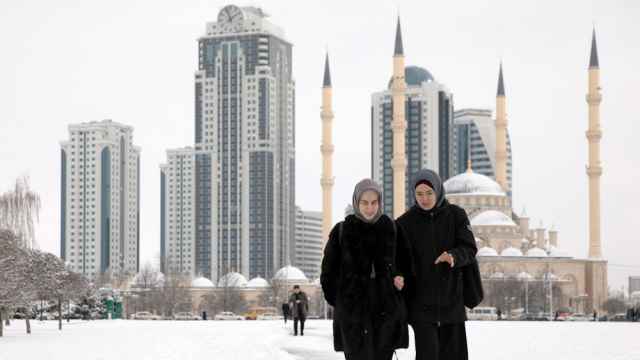In an interview with America Magazine published on Monday, Pope Francis off-handedly disparaged Russia's Buryat and Chechen ethnic minorities, characterizing them as the "cruelest" soldiers in the Russian military.
By saying this, Pope Francis — whether on purpose or by accident — repeated one of the best-known stereotypes in the canon of Russian propaganda, namely that of the innate nobility of Russian soldiers and officers who strive to protect the vulnerable and fight for what is right, while non-ethnic Russian soldiers are marauders and murderers.
This deeply problematic trope's main characteristic is the casual way it is used, not only by pro-Kremlin activists and propagandists, but by Russian opposition politicians too. Even some Ukrainian news editors are guilty of using it — and inevitably see their readership spike with every headline about “militant Buryats.”
Unlike English, the Russian language makes a clear distinction between Russian citizens (российские/rossiyskie) and ethnic Russians (русские/russkie). The latter are the torch bearers of "the Russian tradition," romanticized by the Pope and with whom all the stereotypes associated with Russia are associated: vodka, balalaikas, and banyas; they read Tolstoy, Dostoyevsky and Chekhov, and they are proud of their poetic language and the significance of their culture.
Ethnic minorities in Russia have a completely different status, however, usually unable to learn their native language as schoolchildren and then regularly denied housing and prestigious jobs as adults. They'll also regularly be searched and subjected to document checks on the streets and in the metro simply due to their surnames or their appearance.
Chechens experience this day-to-day racism more than any other group in Russian society, the legacy of two wars fought between Moscow and Chechnya following the collapse of the Soviet Union that left many ethnic Russians believing that Chechens have a natural inclination to violence.
And yet despite being frequently treated as second-class citizens in Russia, members of Russia's ethnic minorities have served in Ukraine in huge numbers, with Buryatia, Dagestan and Kalmykia among the most “mobilized” of Russia's regions. Russia may well be a multiethnic country, but it's also one in which racial discrimination thrives.
When Pope Francis made his comments about Chechens and Buryats, he did several things. First, he handed Russian propaganda an easy win, allowing it to denounce the West for its obvious racism. Despite representing a country that is itself highly xenophobic (if not in words, then in deeds), Russian Foreign Ministry spokesperson Maria Zakharova immediately took to social media to express her indignation at the Pope's words. The Pope's comments managed to make Zakharova appear reasonable, even though her job involves spouting nonsense on a daily basis.
Second, the Pope's comments have global reach and were read around the world. If the stereotype of Buryat and Chechen cruelty was previously confined to the Russian-speaking world, now the rest of the planet has been made aware of it. Of course, many Buryats and Chechens live outside Russia in multiple diasporas around the world.
Third, despite preaching Christian values and being a moral authority for tens of millions of people, Pope Francis indulged an entire segment of Russian society with extreme nationalist and even overtly racist views, casually reinforcing racist stereotypes about two entire ethnic groups, and in doing so, setting the stage for intra-religious strife, given that Chechens are Muslims and Buryats Buddhists.
What could have motivated Pope Francis to make these hurtful comments? It's impossible to say for sure, but there are a few likely scenarios. The first is that the Pope has no serious interest in either Russia or Ukraine and therefore blindly accepts what he sees in news headlines just as any other person might.
Reporting from Ukraine has been plagued by inaccuracies and outright falsehoods about the behavior of Russian ethnic minority soldiers. One particularly egregious example was a recurring story that attributed the massacre in the town of Bucha to Buryats in the Russian military.
Since then, the Free Buryatia Foundation has published a full investigation into these claims and comprehensively refuted all stories alleging that there were Buryats in Bucha, establishing instead that the paratroopers stationed in the town came from the western Russian city of Pskov.
While the untruths about there having been a Buryat presence in Bucha are the most notable example of racist slander against Russia's ethnic minorities, there are innumerable others. All this, despite the fact that there is absolutely no evidence more war crimes have been committed by Buryat or Chechen soldiers in Ukraine than ethnically Russian soldiers.
One final possibility is that the Pope deliberately spouted Russian propaganda in a poorly conceived attempt to avoid offending Russians as a whole — and President Vladimir Putin in particular — and thus risk a further rhetorical escalation that might dissuade the Kremlin from sitting down for peace talks with the Ukrainian government.
The real question the Pope's comments have raised, however, is whose behavior should actually be considered "the cruelest" here — that of Chechens and Buryats or that of Pope Francis and Vladimir Putin.
A Message from The Moscow Times:
Dear readers,
We are facing unprecedented challenges. Russia's Prosecutor General's Office has designated The Moscow Times as an "undesirable" organization, criminalizing our work and putting our staff at risk of prosecution. This follows our earlier unjust labeling as a "foreign agent."
These actions are direct attempts to silence independent journalism in Russia. The authorities claim our work "discredits the decisions of the Russian leadership." We see things differently: we strive to provide accurate, unbiased reporting on Russia.
We, the journalists of The Moscow Times, refuse to be silenced. But to continue our work, we need your help.
Your support, no matter how small, makes a world of difference. If you can, please support us monthly starting from just $2. It's quick to set up, and every contribution makes a significant impact.
By supporting The Moscow Times, you're defending open, independent journalism in the face of repression. Thank you for standing with us.
Remind me later.








